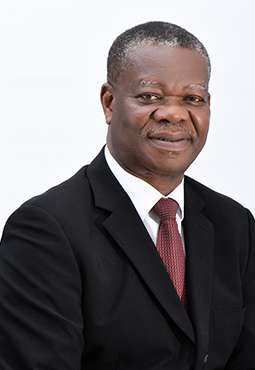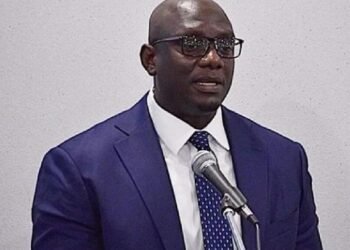In recent years, cases of professional misconduct within the healthcare sector, particularly involving medical professionals engaging in sexual harassment and substance abuse, have been a growing concern.
The issue of doctors using alcohol or drugs, or engaging in inappropriate behavior such as sexual harassment in the examination room, has raised alarms within the Ghana Medical Association ( GMA) and its regulatory circles. These disturbing trends, however, have not gone unnoticed.
The Former registrar of the Ghana Medical and Dental Council, Dr. Eli Kwasi Atikpui has voiced out Efforts made by the Association to mitigate these issues currently ongoing, alongside the need for patients to be more proactive in reporting incidents of misconduct.
Human Nature and Professional Stress
“Doctors are human beings just like you and I, and they are also prone to some of these vices.”
Dr. Eli Kwasi Atikpui Former registrar of the Ghana Medical and Dental Council
Medical training, which is notoriously rigorous and stressful, can sometimes lead individuals to adopt unhealthy coping mechanisms.
“Doctors are under immense pressure, and they may turn to alcohol or drugs thinking that it will help them manage stress.’’
Dr. Eli Kwasi Atikpui Former registrar of the Ghana Medical and Dental Council
While stress management techniques are necessary for maintaining a healthy work-life balance, these behaviors mustn’t spill over into unprofessional conduct in the clinical setting.
Regulatory Measures: The Role of the Medical and Dental Council

Despite the challenges doctors face, regulatory bodies such as the Medical and Dental Council are responsible for ensuring that medical professionals adhere to a strict code of ethics and maintain high standards of practice.
“There is a lot of good supervision to ensure that at least some of these problems are identified and dealt with.’’
Dr. Eli Kwasi Atikpui Former registrar of the Ghana Medical and Dental Council
The regulations set forth by the Council aim to address both substance abuse and inappropriate behaviors such as sexual harassment.
The regulatory bodies ensure that all medical students and professionals undergo rigorous training and assessments, and they are held accountable if they fall short of ethical and professional standards.
As a preventive measure, the training process also involves screening for personal issues that might affect one’s fitness to practice.
“The regulator hasn’t really left out some of these things, and they are continually monitoring and sanctioning appropriately when violations are identified.”
Dr. Eli Kwasi Atikpui Former registrar of the Ghana Medical and Dental Council
Patient Rights and Reporting Misconduct
For patients, it can be difficult to discern when medical care crosses into inappropriate behavior, particularly when trust in healthcare professionals is a fundamental part of the therapeutic relationship. One of the most common areas of concern is sexual harassment, particularly during sensitive examinations.
The important distinction is whether a doctor’s actions align with standard medical protocols or go beyond what is necessary for diagnosis and treatment.
Dr. Atikpui clarified the issue by explaining that if a patient presents with lower abdominal pain, for instance, a physical examination may include an abdominal and pelvic exam.
However, if the doctor’s behavior deviates from the medical protocol, the patient should immediately be concerned.
“If the doctor goes to examine areas like the breast without medical necessity, the patient should take offense and report it.”
Dr. Eli Kwasi Atikpui Former registrar of the Ghana Medical and Dental Council
If a patient experiences any inappropriate behavior, whether it’s sexual harassment or substance abuse in a healthcare setting, they are encouraged to report the incident immediately to the institution or any nearby regulatory authority.
“The patient should immediately report to either the institution or anybody around. There are systems in place in the various institutions that allow patients to report misconduct.”
Dr. Eli Kwasi Atikpui Former registrar of the Ghana Medical and Dental Council
Building Effective Reporting Systems
One key solution proposed by experts is to improve and enforce complaint feedback mechanisms in healthcare institutions.
The representative of the Greater Accra vice President from the Coalition of NGOs in Health, Mr. Isaac Ampomah pointed out that;
“There should be a robust complaint feedback mechanism that will help clients and victims to be able to report some of these cases.”
Isaac Ampomah Greater Accra vice President from the Coalition of NGOs in Health
Additionally, healthcare facilities must ensure the presence of a supervisory team—such as nurses or administrative staff—during sensitive examinations. This would help provide an added layer of accountability to prevent such misconduct.
“Doctors need to be examined periodically for substance abuse or mental health challenges.’’
Isaac Ampomah Greater Accra vice President from the Coalition of NGOs in Health
This kind of proactive approach would help mitigate the risk of misconduct, ensuring that healthcare professionals remain fit to practice and can provide safe, ethical care to their patients.
Empowering Patients
Finally, empowering patients to speak up and take control of their healthcare is essential in minimizing the risk of sexual harassment and other forms of misconduct.
“The client needs to be sensitive enough to engage the doctor and say, this is a no-go area.’’ Isaac Ampomah emphasized.
Encouraging patients to ask questions and challenge any actions they find inappropriate is key to creating a safer environment in healthcare settings.
By doing so, both the healthcare institution and the patient can work together to uphold the standards of medical ethics and professionalism.
In conclusion, the issue of misconduct within the medical profession—whether through substance abuse or sexual harassment—requires a multi-faceted approach.
This includes the effective supervision of healthcare professionals, regular mental health and substance abuse assessments, and the empowerment of patients to report misconduct.
The Medical and Dental Council, healthcare institutions, and patients themselves all play a role in ensuring that the medical profession remains a safe, ethical, and trustworthy space for both practitioners and patients.
By strengthening reporting mechanisms, reinforcing ethical standards, and encouraging proactive communication, the healthcare sector can begin to address these concerns more effectively.























